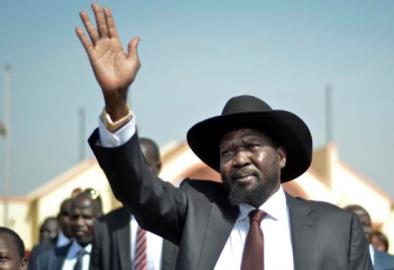Kiir sends delegation to Upper Nile after top military officer dies in ambush
April 3, 2015 (JUBA) – South Sudan’s president, Salva Kiir, has dispatched a high-level delegation to the oil-producing Upper Nile state following the death of a high-ranking military officer, who was ambushed on Wednesday.

Presidential advisor Tor Deng Mawien said the high-powered delegation comprised of speaker of the council of states Joseph Bol Chan and minister of petroleum and mining Stephen Dhieu Dau, as well as MPs from both the Dinka and Shilluk groups in Upper Nile state whose youth are allegedly involved in a dispute.
Local officials told Sudan Tribune that Chan and other members of the delegation went straight into a meeting with senior traditional leaders and youth representatives, as well as the local military command in the area.
Meanwhile, Upper Nile state information minister Peter Hoth Tuach said he had no information on the delegation’s reported change of the route to Paloich, saying the state governor and cabinet had been expecting the group in the Upper Nile capital Malakal on Thursday to attend the officer’s burial service.
It remains unclear why the government could not send a delegation to attend the burial or why it delayed visiting the crime scene.
However, observers and independent analysts said the decision reflected the division within the military leadership over the delegation’s role. Several military sources told Sudan Tribune on Friday that the entire general command at the headquarters in Juba, including the army’s chief of general staff and deputy for operations was unaware of the mission.
Major General Johnson Olony, who is the overall commander of forces in which the deceased was the second in command, also denied sanctioning the mission.
State officials also claimed the South Sudanese army’s (SPLA) seventh division in Malakal, which covers the area, failed to participate in the reception of the body and in the burial.
(ST)
